‘El plan’, Polo Menárguez’s first feature starring Antonio de la Torre and Raúl Arévalo, will be Spain’s second film competing in the Official Section
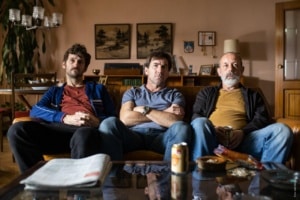
The 64th edition of the Valladolid International Film Festival (SEMINCI), will feature the premiere in its competitive Official Section of Spanish film El plan, the directorial debut of Polo Menárguez starring Antonio de la Torre, Raúl Arévalo and Chema del Barco. This is the second Spanish title in competition after the already announced opening screening of Benito Zambrano’s Intemperie (Out in the Open). Spain’s film share in the forthcoming edition of the Valladolid Festival will also include a large number of titles (both shorts and feature-length films) in the similarly competitive sections Meeting Point and Time of History, most of them by debutant filmmakers.
Written and directed by Polo Menárguez, El plan is the screen adaptation of the homonymous stage play by Ignasi Vidal. This is the story of three losers (Paco, Ramón and Andrade): a trio of friends who have remained unemployed ever since the security company where they used to work closed down. It is 9 am and they have arranged to meet in order to carry out their plan. Several complications prevent them from leaving their homes and gradually they become entangled in a number of uncomfortable situations that will break down their walls and tear off their masks, so that their friendship will change for ever. The film has been produced by Nacho La Casa for Capitán Araña, and Filmax will operate the movie’s commercial distribution.
After a long career as a short-film maker, Menárguez directed his first experimental picture in 2013. Halfway between fiction and documentary, Dos amigos was nominated for Best First Film at the Toulouse Film Festival. After working as assistant editor in Fernando León de Aranoa’s documentary feature Politics, Instructions Manual, he received further training in the documentary filmmaking workshop run by the International Film and TV School at San Antonio de los Baños (Cuba). Following these experiences, he decided to shoot in Serbia the documentary film Invierno en Europa, which premiered in our Festival’s section DOC.España in 2017, where it received the Jury’s Special Mention. Again with a focus on migration, Menárguez has directed the documentary series Dreams without Borders, where he also authored four chapters.
Spain’s representation in the Official Section is complete with the animation short Flesh, a Spanish-Brazilian co-production written, directed and animated by another debutant filmmaker, Camila Kater. Flesh is an animated documentary that resorts to multiple techniques and consists of five real stories involving five women. While exploring several materials and media, the lives of these women are chronologically presented in episodes called doneness levels of flesh: childhood is raw or extra rare, adolescence is rare, adult age equals à point, the climateric age represents medium red and old age is well-done.
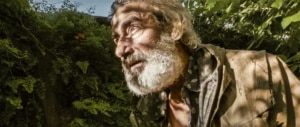
The 64th edition of Seminci will be screening one feature-length film and six shorts from Spain in its programme strand Meeting Point, the competitive parallel section that showcases first or second films that are particularly relevant in terms of their topical interest or artistic value. The Spanish feature-length entry is Un tiempo precioso, the directorial debut of actor Miki Molina. The film possesses autobiographical overtones and tells the story of an actor, Miguel, whose career is declining while he is diagnosed with Alzheimer’s disease and a brain tumor. On learning the news, the protagonist decides to embark on his last journey and return to Ibiza, which used to be his home for many years. There, despite the devastation caused by his disease, he lives the “precious time” referred to in the film’s title by reuniting with his son Carlos, whom he has not seen for fifteen years, and falling in love again with his ex Sandra. Miki Molina co-writes, directs and stars the film together with Sandra Blackstad, Carlos Pulido and Saturnino García. Un tiempo precioso has been produced by Forest Film.
Meeting Point will also host a new edition of The Night of Spanish Short Films, featuring the premiere of six titles by as many debutant filmmakers: Beef, by Ingride Santos; La prueba, by Joaquín Villalonga; María, by Paco Ruiz; El método PIGS, by Boris Kozlov; Solsticio de verano, by Carlota González-Adrió; and Todo el mundo se parece de lejos, by Rafael de los Arcos.
Time of History
Seminci’s documentary section, Time of History, will premiere two feature-lengths and three short films produced in Spain, all of them in competition. More specifically, this festival slot will screen Lagun y la resistencia contra ETA, by Belén Verdugo Orefice, a documentary that analyses the role played during a half century by the Lagun bookshop in de San Sebastian, an establishment founded by María Teresa Castells. The bookshop first became a point of reference for the anti-Francoist struggle and later a victim of many attacks by the terrorist organisation ETA and its circles, including the attempt to murder the business’s co-owner: María Teresa’s husband and Socialist politician José Ramón Recalde.
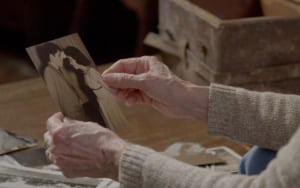
Time of History will likewise host the first screening of El viaje de Javier Heraud, the latest documentary by Javier Corcuera, the author of I’m Still (Kachkaniraqmi), Winter in Baghdad or The Back of the World. His new film focuses on the Peruvian poet, teacher and guerrilla member Javier Heraud, a figure whom the filmmaker feels particularly attached to since Corcuera is himself the son and nephew of two Peruvian poets who were contemporary with Heraud (Arturo and Marco Antonio Corcuera). Heraud only managed to publish two books in his lifetime, both in 1960: El río and El viaje. The latter earned him the Young Peruvian Poet Award, which had been created by Marco Antonio Corcuera himself. On 15 May 1963, in a town in the Peruvian selva, the poet and guerrillaman was shot dead at the age of 21 in the course of a confrontation with army troops. El viaje de Javier Heraud has been co-produced by Quechua Films and La Mula Producciones (Peru) in partnership with Tamboura Films (Spain).
The section will additionally screen three documentary short films: all three Spanish productions in full or in part. These are de Confined Spaces by Omar Razzak and Shira Ukrainitz (Spain / France / Israel); El infierno by Raúl de la Fuente Calle; and Xavier Marrades’s Misericordia, (Spain / Brazil).
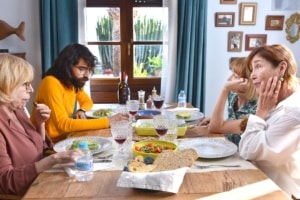
RTVE Gala
For the second consecutive year, the Valladolid International Film Festival will be hosting the RTVE Gala event where the public broadcaster will screen the preview of one of its film productions days ahead of its commercial release (last year it was Sin fin, by César and José Esteban Alenda). The title chosen for the 64 edition of SEMINCI is Salir del ropero, the first fiction feature by Ángeles Reiné. Starring Ingrid García-Jonsson, Verónica Forqué, Rosa María Sardà, David Verdaguer and Candela Peña in the main roles, this comedy tells the story of Eva, a young and promising Spanish lawyer based in Edinburgh who sees her wedding plans with the heir of a wealthy and ultraconservative Scottish family jeopardised by the decision of her grandmother Sofía to marry her soulmate Celia.
Movistar+ section
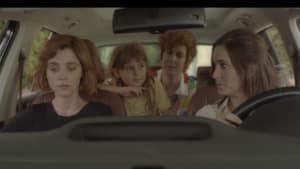
The 64th edition will see the beginning of a partnership between SEMINCI and Movistar+ consisting in the screening of the first four episodes of Leticia Dolera’s TV series Perfect Life. Dolera is also the series’ co-writer and lead actress together with Aixa Villagrán and Celia Freijeiro. Perfect Life tells the story of María, Cristina and Esther, who are experiencing a critical time in their existence, each for different reasons. All three will discover that their lives needn’t turn out as planned. The series was highly acclaimed in the latest edition of Canneseries, where it bagged the award for Best Series and the Special Award for Best Performance created ad hoc in order to recognize the work of the protagonist trio.
To these titles we need to add the lineups of regular sections Spanish Cinema, which every year reviews the Spanish film productions from the last twelve months; DOC. España, the competitive sidebar dedicated to Spain’s documentary cinema; and Castilla y León en Largo/ Castilla y León en Corto, which screen feature length films and shorts made by directors born or based in Castile and Leon, or either shot or produced in the region. The Valladolid Festival will shortly announce the films screening in these sections.
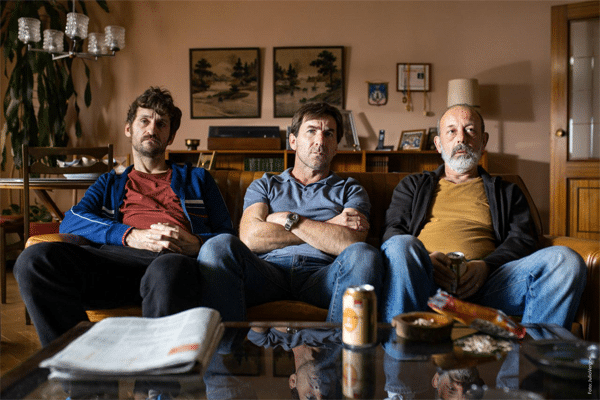


























![Logo Foro Cultural de Austria Madrid[1]](https://www.seminci.com/wp-content/uploads/2024/09/Logo-Foro-Cultural-de-Austria-Madrid1-300x76.jpg)








